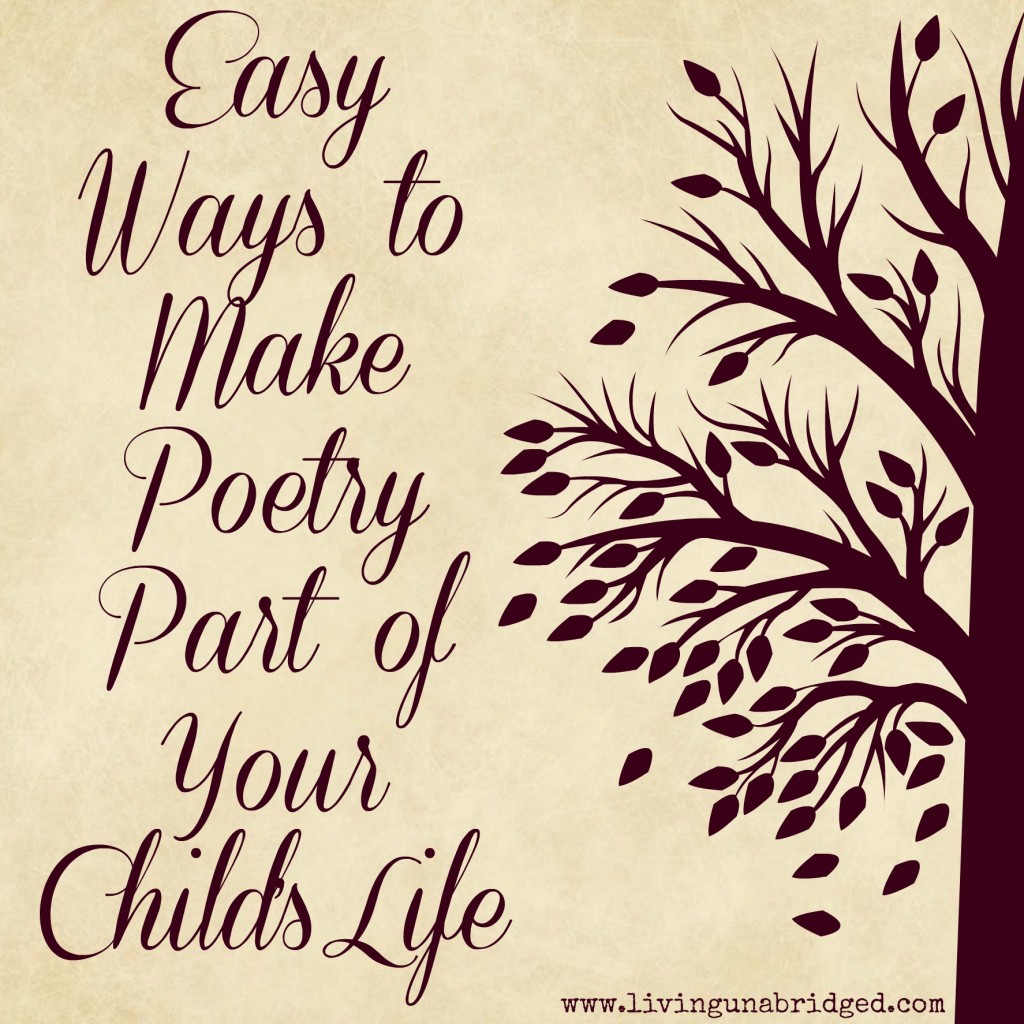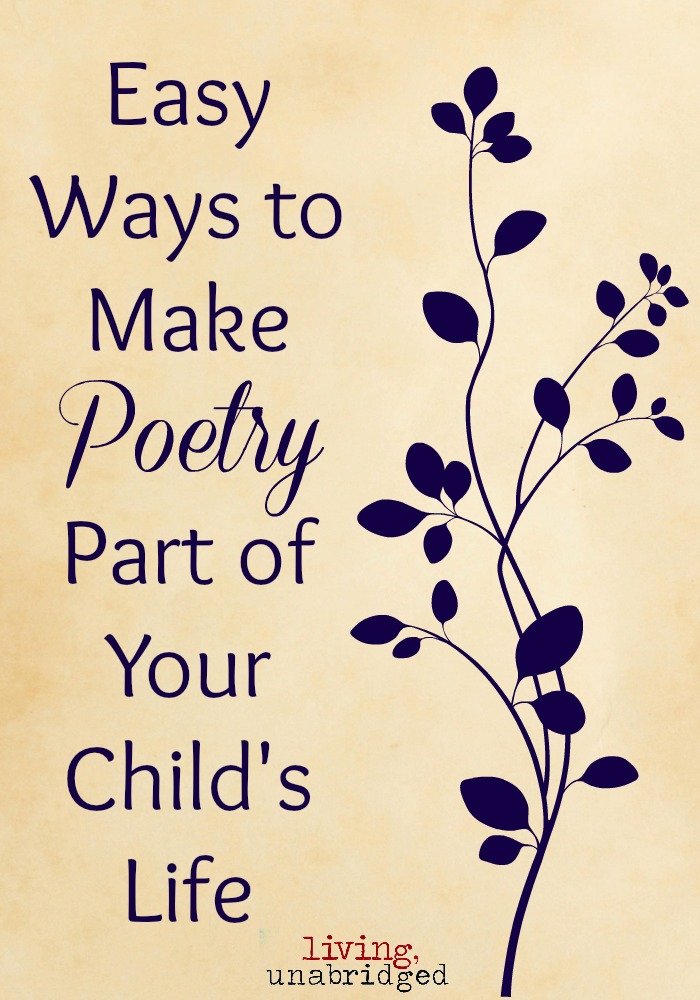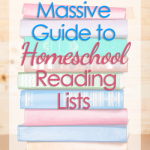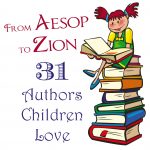Time for a homeschool mom confession: I didn't love poetry growing up. There are several reasons for that, but we don't have to get into all of that right now.
So, anyway, as we started having our own children and we started formulating our philosophy of homeschooling, I knew I wanted poetry to be part of my kids' lives. I didn't want it to be a "special" subject. I didn't want to make a big deal about it. I didn't want to read it in an affected voice that made my kids suspect something was different (and therefore: difficult) about poems. I especially didn't want to dissect a poem as if a poem is no different from a dead frog in a biology lab.
I just wanted to love it, and I wanted my kids to love it too.

Here are some simple ways we've found to include poetry in our lives:
- Start with nursery rhymes. Everyone knows a few, and every family ought to own at least one copy of Mother Goose. We started by reading a few pages of nursery rhymes before every naptime.
- Have each child always working on at least one poem and one scripture passage. For our kids, I choose the passages. I used to choose the poems but I've allowed the children more say in that as they've gotten older. Be sure to review the already learned poems and passages.
- Quote poems or sections of rhymes often. Anything is fair game, even Dr. Seuss books. See who can remember the most, if your family is competitive. (Just us?)
- Make the poetry books accessible. Are all the poetry books up where the children can't reach them? Move them down.
- Have different types of poetry books: small to easily fit in children's hands, gorgeously bound to marvel over, slim paperbacks that aren't too precious, etc. Library sales are a great source for poetry books.
- Don't sneer at anthologies, even the inexpensive type. Anthologies help you find a poem by subject or season or author. If your child is feeling an affinity with a particular poet, find them more poems by that author.
- Write out poems and have your children draw or decorate a picture representation of that poem. Be sure to display the best ones.
- Have your children start their own poetry binders. They can copy their favorites in their best handwriting, or print them out. See some great examples of memory work binders here: Memory Work Binders at Simply Convivial and Memory Work Binder at Nurturing Learning.
- Check out books (or buy them) with illustrated poems. One of our favorites is "Stopping By Woods on a Snowy Evening
". It has gorgeous pictures and we've been known to read it over and over again during the colder months.
- Look for the Ted Jacobs poetry CDs: poems set to music. Just listening to these CDs have helped my daughters memorize many poems.
- If you use First Language Lessons for the Well-Trained Mind
from Peace Hill Press (this is the grammar curriculum we use in the younger grades), be sure to check out these printables from Homeschool Creations. One thing I appreciate about this curriculum is how poetry is included and these coloring sheets are a fun addition.
- If you're looking for some already chosen memory work (including a poem, hymn, & scripture), Candace at His Mercy is New has you covered for an entire year: Memory Work Made Easy.
- We've added Linguistic Development through Poetry Memorization from IEW to our homeschool "morning time". All the poems are chosen for you when you use this resource.
A Poetry Resource for Older Children
As my children get older, they can study more about the forms of poetry, what makes a "good" poem, and what different rhythms and such are. The goal is that, by the time they study those things, they'll have a supply of poems in their memories that they can reference. My favorite resource for this, so far, has been:
A Kick in the Head: An Everyday Guide to Poetic Formsby Paul Janeczko. This is a gorgeous book just to look at, but my children were also immediately inspired to try their hand at writing various forms. (Couplets being easiest, of course, but Haiku also captured a few imaginations.)
How Poetry Has Been Part of our Life
So far in our homeschool life we've memorized scores of poems (and scripture passages). We've watched our poetry collection grow. We've seen young poets inspired to compose their own poetic efforts, including handwritten birthday cards that far surpass Hallmark for wit and meaning. We've had discussions about poems that make us sad, and how a poem can make you laugh in just two short lines.
Number of discussions of iambic pentameter: roughly none.
Number of poems dissected until no one likes it any more: zero.
As a person who is always studying the craft of writing, I find my writing improves when I am regularly reading poetry. Poets are the masters of language. They squeeze meaning and purpose into every syllable. If Writers must be Readers, then Better Writers must be Readers of Poetry. That's reason enough for me to make poetry part of my life.
What are your favorite resources for making poetry part of your life?












A wonderful poet/anthologist for kids is Lee Bennett Hopkins. He has many collections on particular subjects that fit into other lessons and many that are just fun or inspiring to read again and again.